A new report from the World Bank highlights the profound impact of climate change on education systems worldwide, urging policymakers to take immediate action to protect learning environments and ensure continuity in education. The report, titled “The Impact of Climate Change on Education and What to Do About It,” emphasizes that rising temperatures and increasing extreme weather events are disrupting schooling, leading to significant learning losses and threatening the futures of millions of students.
According to the report, climate change is associated with a rise in the frequency and intensity of extreme weather events, such as cyclones, floods, droughts, and heatwaves. These events have resulted in massive school closures, exacerbating learning gaps and dropouts. A child born today is projected to experience significantly more climate-related disasters throughout their life compared to previous generations. For instance, a 10-year-old in 2024 will face three times more river floods and five times more droughts compared to a child born in 1970.
The report reveals that during the past two decades, schools were closed in approximately 75% of extreme weather events impacting over 5 million people. The consequences of these closures are dire: each day of school lost translates into lost learning, with evidence from the COVID-19 pandemic underscoring the long-term implications of school disruptions. Moreover, rising temperatures during school hours hinder students’ ability to learn effectively, particularly in regions already facing high heat.
Beyond direct impacts, climate change has indirect effects on education through health crises, food insecurity, and economic instability. Children exposed to extreme weather conditions are at risk of mental health challenges, including anxiety and post-traumatic stress disorder (PTSD). The report warns that without immediate action, the education sector could face a significant economic time bomb, with reduced educational attainment leading to lower earnings and increased poverty rates.

To combat these challenges, the authors of the report propose four key strategies for policymakers:
- Education Management for Resilience: Adapt education systems to enhance resilience against climate shocks.
- School Infrastructure for Resilience: Invest in building and retrofitting schools to withstand extreme weather events.
- Ensuring Learning Continuity: Develop plans to maintain educational services during climate-related disruptions.
- Leveraging Students and Teachers as Change Agents: Empower the education community to advocate for and implement climate action.
The report concludes by emphasizing that education is crucial for achieving long-term economic development and poverty reduction. However, it underscores the urgent need for governments to prioritize educational resilience in climate policy agendas. Failure to address these challenges could undermine decades of progress in improving educational access and quality, ultimately threatening the livelihoods of future generations.
As the world grapples with the realities of climate change, educators and policymakers must work collaboratively to safeguard the future of education and ensure that every child has the opportunity to learn and thrive in a changing climate.
For more details, you can access the full report from the World Bank here.
Education Technology That You Might Be Of Interest:
Get a special discount by quoting code AISLMALL during CHECKOUT.
Book Creator
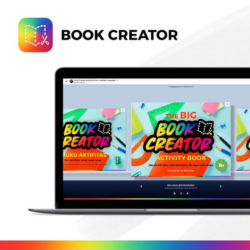
Book Creator was established in 2011 and is based in the UK. Book Creator is a versatile digital tool that allows users of all ages and abilities to create interactive multimedia books. It fosters creativity, collaboration, and digital literacy, supporting various learning styles. With over 2 million books created monthly, it enhances student engagement and learning.
BOOX – E ink tablet Series

BOOX has more than 10 years of experience in developing eye-protection e-books to help you learn more about different types of e-book products. BOOX – E ink tablet Series ; Go Color 7″ (Black) (HKD1,998 with case) Original: HKD2,498 ; Go 10.3 ($2998 with case) Original: HKD3,498 ; 10.3” Tab Ultra C Pro ($4,998 with case) Original: HKD5,498
Cathoven – Language Hub
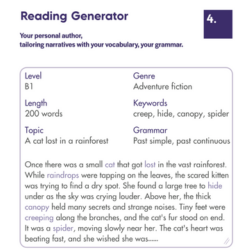
Founded in 2022, Cathoven is a smart assistant tailored for language educators, helping them create level-appropriate lessons and exams, assess and score student work, identify weaknesses, and provide actionable feedback. Used by top institutions like Columbia Uni, Cathoven was ranked the second-best AI in Education project by QS after Duolingo.
Earth Cubs Environmental Content
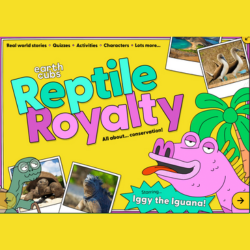
Earth Cubs offers free, award-winning content on sustainability, climate change, and the environment. Through positive storytelling, it inspires young children on topics like renewable energy and equality, aligning with the UN’s Sustainable Development Goals, and is supported by mission-aligned organizations.
ELimu - Learning Games

eLimu World is an interactive learning platform designed for kids aged 4-8, offering a range of fun, inquiry-based learning (IBL) games that help children learn better and faster. Our solutions cover key subjects like math and science, using a gamified approach that keeps kids engaged while building essential skills.
KAZ – Specialised and Accessible Touch-Typing Software
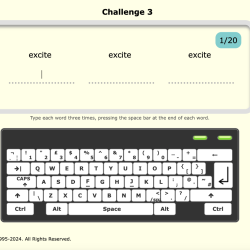
KAZ’s inclusive touch-typing course for home and schools supports mainstream, neurodivergent, hearing-impaired, and visually impaired learners. It’s an online tutorial with minimal teacher intervention, and structured lesson plans are available. Learners can access it from school or home on Macs, PCs, Chromebooks, and iPads.
Nova AI Mentor: Redefining Personalised Learning

Novalearn Limited is an EdTech company transforming education by seamlessly integrating machine learning, studio-produced edutainment, and quality STEAM education aligned with international K-12 curricula. Enhance school-wide performance with advanced analytics and intelligent recommendations for students. Customisable to your school’s needs and rubrics. Supportive adaptive learning system. Automatic generated reports for teachers and principals.
School365 - SaaS platform
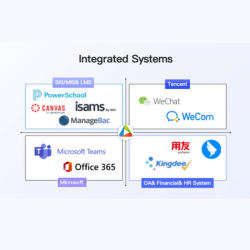
School365 is a SaaS platform designed for K12 international schools in China, offering seamless integration of data and processes. It provides administrators with powerful insights and efficient management tools, while its customizable design ensures scalability to meet the unique needs of schools.








